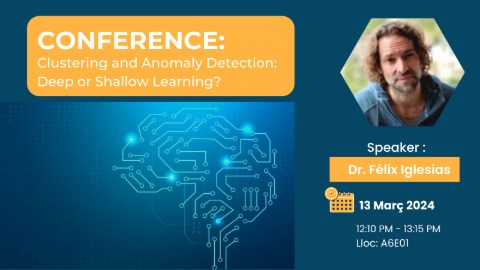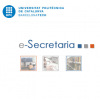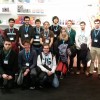-
Estudios
-
Másteres
- ¿Quieres estudiar un Máster?
- Máster en Ingeniería Informática
- Máster en Ingeniería Informática - Modalidad Empresa
- Máster en Innovación e Investigación en Informática
- Máster en Inteligencia Artificial
- Master en Ciberseguridad
- Máster en Formación del Profesorado de Educación Secundaria
- Erasmus Mundus Master in Big Data Management and Analytics
- Máster en Ciencia de Datos
- Máster en Movilidad Urbana
- Otros Másteres
-
Másteres
-
Movilidad
- Investigación
- Empresa
-
La FIB
- Estudios
- Grados
- Másteres
- ¿Quieres estudiar un Máster?
- Máster en Ingeniería Informática
- Máster en Ingeniería Informática - Modalidad Empresa
- Máster en Innovación e Investigación en Informática
- Máster en Inteligencia Artificial
- Master en Ciberseguridad
- Máster en Formación del Profesorado de Educación Secundaria
- Erasmus Mundus Master in Big Data Management and Analytics
- Máster en Ciencia de Datos
- Máster en Movilidad Urbana
- Otros Másteres
- Secretaría
- Becas y Ayudas
- Movilidad
- Investigación
- Empresa
- La FIB
Conference: "Clustering and Anomaly Detection: Deep or Shallow Learning?"
Usted está aquí
Date: Wednesday, 13th of March
Time: 12:10- 13:15
Place: A6E01
Speaker: Félix Iglesiaslunes 11 Marzo 2024

Seminar: Clustering and Anomaly Detection: Deep or Shallow Learning?
Abstract: In numerous classification applications, deep learning has achieved accuracy levels that were unimaginable just a few years ago. However, within the two primary branches of unsupervised learning —clustering and anomaly detection— the advantages of deep learning over traditional options are commonly uncertain or even non-existent. Why is this the case? Is unsupervised deep learning inadvisable when compared to shallow learning? Are they alternative or complementary approaches? In this talk, we aim to address these questions by delving into the characteristics and requirements of unsupervised learning, contrasting them with the limitations of deep learning and its current capabilities for these types of tasks.
Whether for describing, modeling, or predicting the behavior of any phenomenon captured in the form of data, unsupervised learning (whether as a central component or as a support) is indispensable in data analysis. It is a key element in the next AI, given the necessity for adaptive systems capable of facing novelty and the unknown.
Speaker bio: Félix Iglesias was born in Madrid, Spain, in 1980. He received the doctoral degree in technical sciences in 2012 from the Vienna University of Technology, Austria. Previously, he obtained the dipl.-ing. degree in electronic engineering and the dipl.-adv. studies in information technologies from La Salle URL, Barcelona, Spain. He has worked on data analysis and machine learning for more than 20 years, including R&D positions for companies in Spain and Austria. Addressed challenges comprise a wide assortment of real-life applications: smart grids, cyber-physical systems, industrial processes, behavioral modeling, network security, medicine, earth sciences, etc. From the academia, he has designed, supervised and lectured classes and laboratories in Spain, Austria, Ireland in the fields of electronics, physics, building automation, network security, machine learning and data analysis; also leading and supervising projects and theses, including PhD students and junior scientists at TU Wien.
He currently holds a position as a Senior Scientist at the Telecommunications Institute of TU Wien. At the same time, he enjoys a Research Fellowship in France in the JUNON Program, in the development of digital twins and AI-models for the natural resources of the Loire Valley. He has published more than 50 papers in reputed scientific conferences and journals and conducted several peer review activities, also taking part in guest editorial boards and tech. prog. committees in main venues related to machine learning and network security.
-
31 Ene 17
-
01 Feb 17
-
01 Feb 17
-
02 Feb 17
-
02 Feb 17
Dónde estamos
C/Jordi Girona Salgado,1-3
08034 BARCELONA España
Tel: (+34) 93 401 70 00
Contacta con la FIB
© Facultat d'Informàtica de Barcelona - Universitat Politècnica de Catalunya - Avíso legal sobre esta web - Configuración de privacidad












